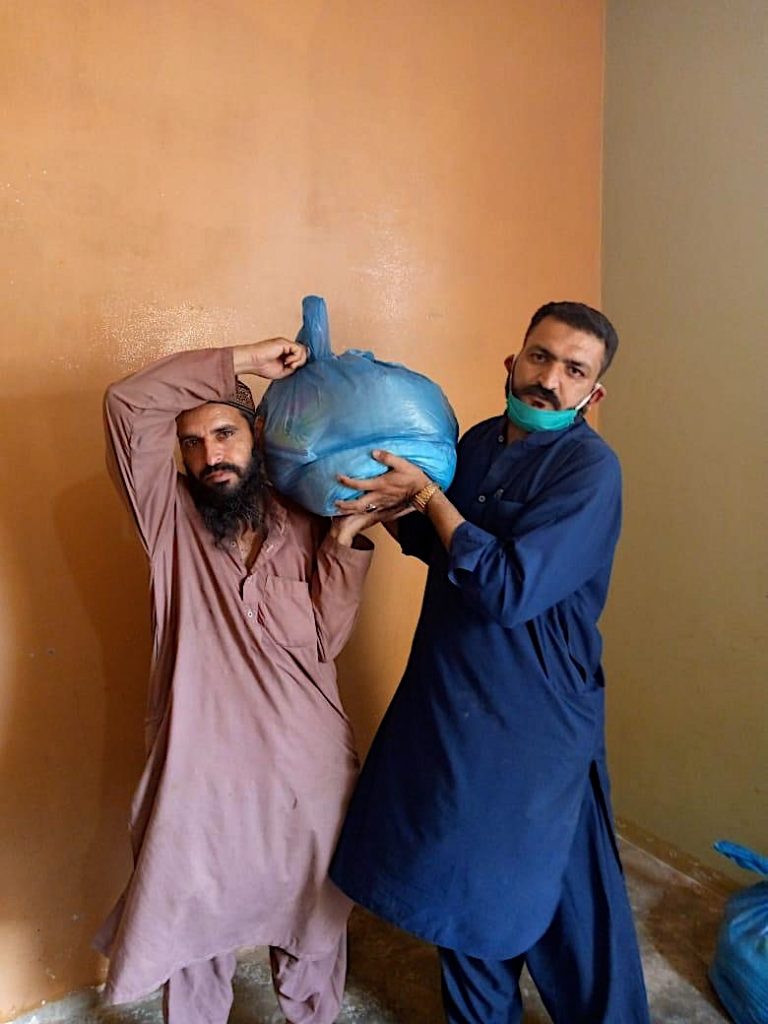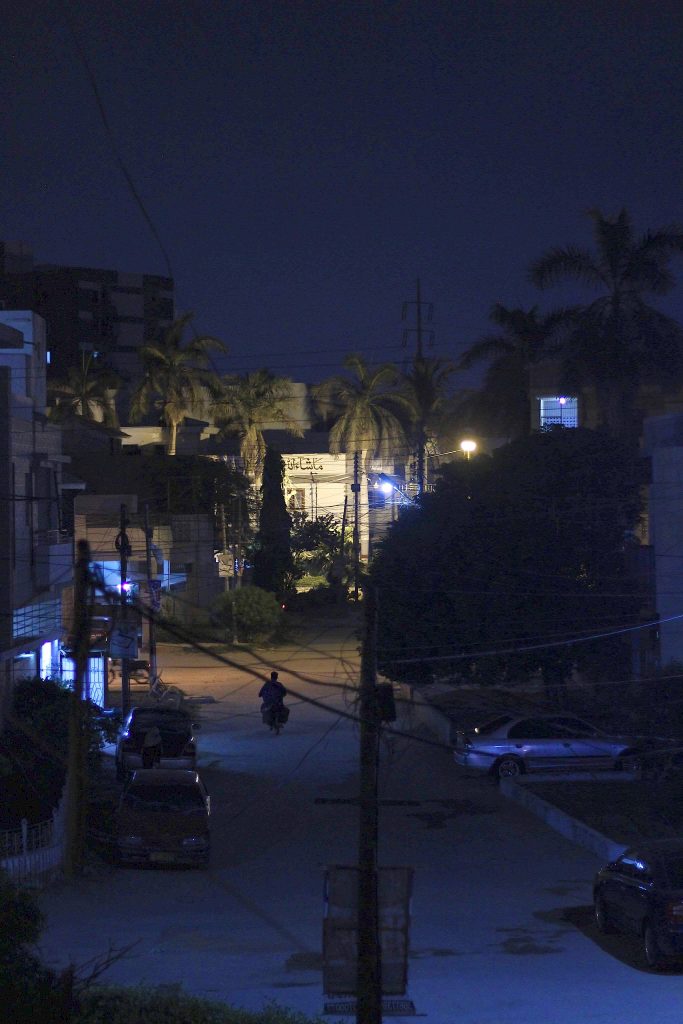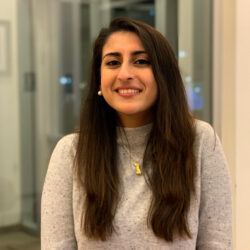In a poor country like Pakistan, halting economic activity could lead to catastrophe, some fear. Instead, wealthier people are helping their poorer neighbors.
As COVID-19 sweeps the globe, people all over the world find themselves dealing with similar issues. Whether in a suburban home in New Jersey or on a balcony in Pakistan, we’re unified, in that we’re forced to cope with something bigger than ourselves.
Walk through almost any town in America right now, and you’ll hear an echoing quietness of a kind we’ve never truly witnessed: shops are closed, schools are out, there are few or no cars passing. It’s an almost apocalyptic scene. But Karachi, Pakistan, where my family is from, is all the louder: even now, the day begins when cats, dogs and roosters alert everyone that the sun has come out. Speakers from local mosques ring out their dawn staggered calls to prayer. The night guard walks down neighborhood streets of dust and dirt, yelling, “wake!” up to the balconies, to alert those above, who need to make it to work. People selling produce or laundry services push their carts down the street, or lead donkeys, yelling toward up to make sure the residents know the subziwala – the vegetable seller — is here.
It’s hard to put such a city to silence.
“Coronavirus has been really intense,” sighed my cousin Novera Arif, who works in Karachi as a client relationship manager. “People are suffering with different kinds of emotions.”
The last time I’d spoken to Novera, she’d been buzzing with excitement. She was traveling all over Pakistan to carry out her work as a celebrity manager, and excited about the potential in Pakistan’s growing media industry. But lately, she’s sounded resigned and weary.
“Pakistan is a third world country, a developing country…Pakistan is not a country that can survive a lockdown in the long term,” she argued, noting that a large number of people earn money as day workers. “If you’re making money every day, [and] if you’re not going out to work every day, that means you don’t have food to eat.”
Among the daily workers are the night guards who wake residents up for work, and the subziwalay who push their carts every morning — essential parts of Pakistani life.

Prime Minister Imran Khan tried, then backed away from ordering, a full national shutdown, saying that he understood that such a poor country could not withstand the closure of its economy. He claimed that if he could not arrange for the government to provide food to families in poverty, his government could not enforce a lockdown.
The number of COVID-19 cases in Pakistan had surpassed 22,000 by May 5, and continues to rise — but Khan understands the major tradeoff that comes with pushing extreme prevention measures. A 5 p.m. curfew has been instituted in Karachi, the capital, and people have been urged to stay home.
“The government can’t stop [people from working],” Novera insisted. She believes the government’s enforcement capabilities are limited — a notion Khan seemed to echo.
“It also hurts people like me, on payroll, because when we don’t generate business, how will they pay salaries?” Novera wondered.
Students have fallen prey to this uncertainty and restlessness as well; they fear the pandemic will squash their academic and career opportunities.
“I’m really worried about graduation, obviously, [and] so feeling very insecure academically,” said another of my cousins, Maha. “And then the job market is going down, so obviously I’m financially insecure also.” Like students around the world, Maha was sent home early from college, and is unsure of the world that will emerge after the COVID-19 outbreak.
“Since I’m a senior and I was doing a research group project, it’s really hard, because I can’t do any field work — but I have to, in order to graduate,” she said. ”So they are discussing what to do about that.”
Despite all the chaos in the United States, and projections that unemployment rates could go even higher than in the Great Depression, there is still a sense that things will eventually return to some sort of new normal.
But in Pakistan, even a small disturbance to the economy rocks the nation, and so a global pandemic has astronomical effects that could mean no new jobs for graduates for years – not even for Maha, though she attends Lahore University of Management Sciences, one of the country’s most prestigious universities.

Defiant nation
But Pakistan is defiant, and Pakistan is stubborn. And its response feels very in character for this struggling country, used to being dealt heavy blows.
“Pakistan is a generous country,” said Novera, breaking her litany of woes. “People are donating and giving charity, but everyone has their own capacity. We need more. We need this to end.”
I’ve heard many stories of people going out of their way to help others. Amid every story of fatigue and hardship, there is a pride in the unity emerging from this low point.
Even though we now live in New Jersey, my family, and our local Pakistani community, are participating. We’re sending aid to families, workers and neighbors back home.
After the pandemic broke out, I watched my mother and father scroll through thread after WhatsApp thread, and talk on the phone with relatives back in Pakistan.
I sat with them outside our home in Basking Ridge, in our backyard of green grass, under blue skies. A chilly spring breeze brushed over our still and peaceful neighborhood. We sat on our charpais — traditional woven beds of wood and netted cotton my mom had ordered from Pakistan years ago to bring a piece of home to the the picket-fence life of suburban America — and ate our karhi with rice.
“We are so fortunate.” My dad broke the silence.
In Pakistan, it’s common for middle class families to have maids and drivers to help around the house, to support the large lower class. My parents reached out to Habib, who had been their driver in Karachi, and asked what they could do.
“Most of these families aren’t able to eat because they are dependent on a daily wage,” Habib explained, echoing Novera’s argument. But a care package of less than $20 can support a family in Pakistan for a month.
“The average income for these families is about 15,000 rupees per month (about $90),” my mother explained. “We made these packages on a month’s basis, but it depends on the size of the family. These packages should support a family for about three weeks to a month. It costs us 2800 to 3000 rupees — about $16-$17.”
Habib sent us a video of himself organizing the preparation of these packages.
“Wheat, sugar, rice, lentils, oil, tea, spices, dry milk, a matchbox, soap, and masks — and that’s one bundle,” he recounts on the tape, where he can be seen in a small cement room, packing supplies with the money my family raised through friends, and social media. These funds have supported 152 families so far.
Once, while video chatting with Maha, I heard the music of an ice cream truck in Karachi. I laughed, because it seemed crazy that I could hear such a familiar sound, thousands of miles away. It was a rare moment of connection, when Maha and I could experience something together. Now we’re again experiencing something together, albeit on a much larger scale. COVID-19 has managed to do something almost no event ever has: connect the world.
About Post Author

Shameen Abubakar
Basking Ridge, N.J.
Professor: Mary D’Ambrosio
Class: Writing the Mediterranean
I found it really rewarding to focus on a missed or smaller story I was in a position to tell. This virus has completely changed our lives. And this story made me see the way it has changed the quiet things we thought couldn't be touched. Surprisingly, coronavirus has sometimes brought unity: a realization that people all over the world are affected by the same kinds of problems.
